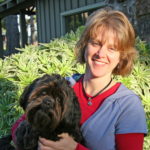
By Rob Campbell
www.cypresscreekchurch.com
In the scriptures, we find a strong, dedicated leader of the people of God– his name is Moses. Moses was a brilliant man, educated in all the wisdom of the Egyptians (Acts 7:22). When we think of Moses, we recall God using him to part the Red Sea. We remember the challenges presented to him by his own people as they wandered through the wilderness. We think of his mentoring abilities with certain protégés like Joshua. There were times, however, when Moses needed others to experience God’s power. Let me cite three examples.
First, Moses was called by God to speak with the Egyptian Pharaoh and lead God’s people to liberty. His response to the Lord may ring of familiarity to you. “O Lord, I have never been eloquent,†he said. “I am slow of speech and tongue†(Exodus 4:10). Here, Moses is expressing to God his lack of confidence and power. How does God respond? God instructs Moses to take his brother, Aaron, with him to speak with the Pharaoh. In essence, God said to Moses, “Okay, my chosen leader, look around you– who is best qualified on your team to deliver the goods?â€
The second episode illustrating Moses’ need for others occurs during Israel’s battle with the Amalekites. In Exodus 17:10-13 we read, “Moses, Aaron and Hur went to the top of the hill. As long as Moses held up his hands, the Israelites were winning, but whenever he lowered his hands, the Amalekites were winning. When Moses’ hands grew tired, they took a stone and put it under him and he sat on it. Aaron and Hur held his hands up– one on one side, one on the other– so that his hands remained steady till sunset. So Joshua overcame the Amalekite army.â€
Finally, in Exodus 18 we find a very tired and weary leader. Moses was serving the people as judge from morning till evening. Enter Jethro, Moses’ father-in-law. Jethro is being used of God as he says to Moses, “You and these people who come to you will only wear yourselves out. The work is too heavy for you; you cannot handle it alone†(Exodus 18:18). Jethro further advises Moses to select capable people who would serve as judges over thousands, hundreds, fifties and tens, leaving only the most difficult cases to Moses.
Please notice that in all three cases cited above– God provided the power for Moses to be an effective leader. God sent to Moses other people– his team members. Now, don’t miss Moses’ response to these three scenarios in his life. He received his team members as a gift from God. This reception of help is rooted in humility.
Like Moses, you may need to receive help from God through others. No man is an island. No man can be strong all the time. Who is God placing in your life to be a conduit of His power? Who is your Aaron? Hur? Jethro?
Comments?
Rob

 by Joel Comiskey
by Joel Comiskey
